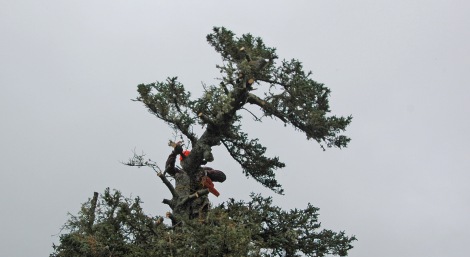End of Life
 Fell-swoop surrender, or slow death? In the human family, these are the stark choices presented in legal and ethical debates about assisted suicide. Like many disabled people, I have strong views on the issue. These are hinted at in my blog post “Slow Death and the Felling of Trees“, but detailed more explicitly in these supplementary texts.
Fell-swoop surrender, or slow death? In the human family, these are the stark choices presented in legal and ethical debates about assisted suicide. Like many disabled people, I have strong views on the issue. These are hinted at in my blog post “Slow Death and the Felling of Trees“, but detailed more explicitly in these supplementary texts.
Opinion Pieces
Op Ed For Montréal Gazette – March 4, 2014, responding to Bill 52
Op Ed for Toronto Star – March 30, 2014, responding to the suicide of Edward Hung
Op Ed for Chronicle Herald – October 14, 2014, anticipating Supreme Court hearing on assisted suicide
Op Ed for Ottawa Citizen – October 14, 2014, anticipating Supreme Court hearing on assisted suicide
Video Recordings
Fireside Chat for the Nova Scotia Health Ethics Network, recorded on October 30, 2014 (31 minutes)
Luncheon Presentation to Canadian Parliamentarians, October 2, 2014. You may view the print version here.)
Legal Submissions
Submission on MAiD Monitoring for the Canadian Minister of Health, February 2018
Expert Opinion Report for the Québec Superior Court, LeBlanc v. A.G. of Canada, September 2012
Background:
In the summer of 2012 I was retained by the Attorney General of Canada to prepare an opinion report for a Québec Superior Court case, LeBlanc v. A.G. of Canada. The case presented a constitutional challenge to Canada’s Criminal Code prohibitions against suicide assistance, but was never argued in court. Following the death of the plaintiff, Ginette LeBlanc, in February 2013, the case was withdrawn.
In this affadavit, I argue against the seductive logic of “fell-swoop” approaches to end-of-life circumstances. I am grateful to many colleagues, particularly members of the Values and Ethics Task Force of the Canadian Association for Community Living, who engaged with me in many intense and far-reaching conversations as my thinking on the issue of suicide assistance has evolved.
Thank you so much Dr. Frazee for your talk yesterday at the University of Ottawa conference on Medical Aid in Dying. Your advocacy work is a testimony of dignity and courage in the face of our “ableism blind spot”.
Lise Poirier-Groulx
Thank you so much Dr. Frazee for your talk yesterday at the University of Ottawa conference on Medical Aid in dying. Your advocacy work is a testimony of courage and dignity in the face of our “ableism blind spot”,
Lise Poirier-Groulx MD
Like so many of us I dread the potentially threatening decision about which we could learn on Friday — a quick glance at the clock tells me that now means tomorrow! I would like to say that the potential threat drove me into potentially productive action! But, rather, it lead me to reflection and a re-reading of all your eloquent yet pointed comments (above) and, also, comments by others and even, I admit, some of my own contributions to the discourse. .And I still struggle to understand why it is that people who are now seeing the possibility of a change in law that would permit assisted suicide as the realization of some previously withheld fundamental right cannot also see the enormity of the threat to the truly fundamental right of people with disabilities to live with some confidence that they, too, are entitled to equality and respect – two components of life for which their fight never ends! You already know but I will repeat my personal gratitude for your contribution to the effort!
Thank you,
Audrey